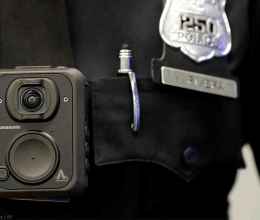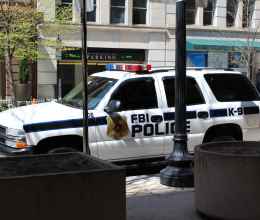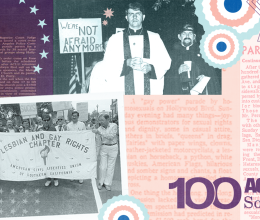
LOS ANGELES - Today the United States Court of Appeals for the Ninth Circuit held that police and prosecutors violated the Constitution by enforcing a gang injunction against residents of Orange County before giving them a meaningful opportunity to contest the allegation that they were gang members.
The ACLU of Southern California (ACLU SoCal) and the law firm Munger Tolles and Olson LLP filed the class-action lawsuit, Vasquez v. Rackauckas, against the Orange County District Attorney (OCDA) Tony Rackaukas and the City of Orange Police Department (OPD) in 2009 when the two law enforcement agencies filed a gang injunction against 115 people alleging they were part of a gang named Orange Varrio Cypress. When more than 50 people showed up in court to contest the allegations that they were not gang members, the OCDA dismissed them rather than try to prove the allegations. Though the individuals were dismissed, the OCDA and OPD obtained the injunction by default against the gang and enforced it against the people they dismissed. The very people the OCDA had dismissed from the gang injunction action were subjected to the gang injunction and in danger of arrest for a variety of everyday activities such as being in public after 10:00 p.m., associating with other people suspected of being gang members (including immediate family members) or being in a restaurant where alcohol is served.
“The OCDA and other law enforcement agencies can no longer go behind closed doors and unilaterally decide who is a gang member,” said Belinda Escobosa Helzer, director of the ACLU SoCal Orange County office. “This ruling brings to light the complexity of identifying active gang members and underscores that the Constitution cannot be ignored.”
In its opinion, the Ninth Circuit ruled that by restricting what people can wear, with whom they can associate and where and when they can be in public areas, gang injunctions place a “heavy burden” on basic, constitutionally protected freedoms. The court also found that the OPD and OCDA’s determination that someone was a gang member carried a “considerable risk of error,” given that gangs are informal organizations without clear indicators of membership, that people can know gang members without being gang members themselves and that the OPD and OCDA did not use any clear standard to decide who was and wasn’t subject to the injunction.
This case could have repercussions outside of Orange County. “It’s common practice in gang injunction cases for prosecutors to name only a gang as a defendant, obtain an injunction by default when no one shows up on behalf of the gang to contest the case and then to apply the injunction to anyone police or prosecutors think may be a gang member, without court approval or a chance for the supposed gang member to be heard,” said ACLU SoCal Senior Staff Attorney Peter Bibring. “The Ninth Circuit’s ruling calls that practice into question.”
“Today’s ruling recognizes that determining who is and isn’t a gang member isn’t always easy, and police and prosecutors can get it wrong. That’s why the Constitution doesn’t leave it up to the whim of the government, but gives someone accused of being a gang member the right to be heard before his or her basic freedoms are restricted,” said Joseph Ybarra, partner with Munger Tolles & Olson LLP.
Download the ruling here: http://bit.ly/1gq4YQu






